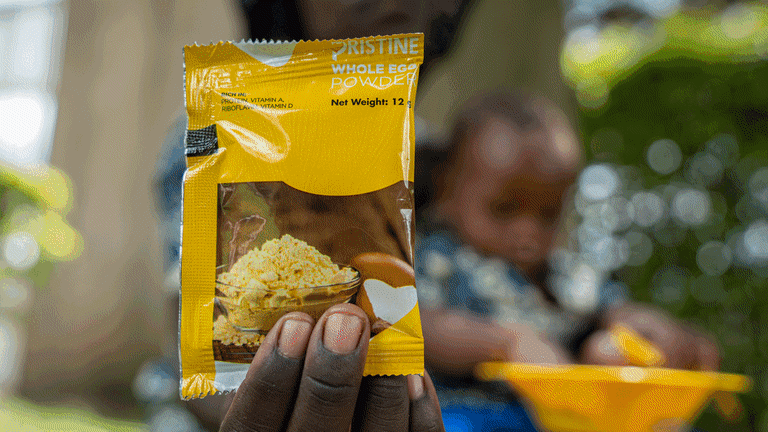
LVIV, Ukraine — Like millions of Ukrainians, Daria — 33 and pregnant — fled her home with her husband and 3-year-old daughter Sofia, whose real name is concealed to protect her privacy, to avoid deadly Russian missiles flying overhead.
“We decided to leave in March after I saw on television that women were giving birth in shelters and underground stations,” Daria tells Devex, resting her arm on her rounded belly. “I didn’t want that to be me.”
Today the family lives in Lviv, 70 kilometers (43 miles) from the Polish border. The Lviv Regional State Administration has provided them with temporary accommodation: a shipping container-sized room in a “modular village” donated by Polish Aid and located in the city’s leafy Stryski Park. Here, life is comparatively safer.
But as Devex found while spending a day with a UNICEF mobile team in the city, the longevity of the war has created new traumas for children and those who care for them. And it is posing fresh challenges for the United Nations agency and its partner organizations.
UNICEF psychologists described how parents’ frustration with their situation is causing them to become aggressive toward their children, who are dealing with grief and separation from friends and family. Psychologists also warn that a lack of routine is negatively impacting children, while the U.N. agency’s managers described the particular challenge of supporting pregnant women.
Concerns about the future
Right now, about 200,000 internally displaced Ukrainians are living in Lviv.
“I’m worried about what we’ll do next,” Daria says, her face tense as she lists her concerns. Their hometown Slovyansk lies just outside of Russian-occupied territory in Eastern Ukraine, making return impossible. “We are living by ourselves in a container, but we can only stay for six months. It has room for four adults, so I’m worried they will put in another family too,” she adds. “It’s very expensive to rent in Lviv and I have to pay for the baby’s delivery. My husband found a low-level job, just to earn something. Sofia doesn’t understand what’s going on.”
As Daria narrates her story, a child nearby shouted out loudly. Her mother yelled angrily back at her, pushing her into their container and slamming the door shut. There is little privacy in the modular village, where 350 residents share bathrooms and one communal area.
“Currently, we’re trying to prevent domestic violence against children — there have been cases between parents and children,” says UNICEF psychologist Nataliya Tybura. “The parents are very angry — they are missing their home and loved ones. They can’t … make plans for the future and [they] become aggressive.”
Tybura is one of seven UNICEF psychologists delivering support full-time across 20 UNICEF-supported shelters in the city. She joined the Lviv City unit after the war started when the agency agreed to an implementing partnership with the local NGO Ukrainian Foundation for Public Health. Psychologists such as Tybura provide initial mental health assessments of children when they arrive at shelters and offer advice to parents about their own mental health and how to care for their children.
Yaroslav Bordiyan, the Lviv region mobile team head, manages seven mobile units across the region, with two more due to start this month. He is also the director of the Lviv Regional Center for Social Services, from where he hired extra psychologists including Tybura. Outside the city, the organization has 12 psychologists on the ground.
“It is not enough to meet demand,” the foundation’s projects coordinator Roman Hrytskiv explains, despite there being around 40 other NGOs in the region. “Demand for psychologists is very high right now and there are too few specialists to meet everyone’s needs.”
Focusing on parents
Giving parents psychological support is more complex than helping the children directly, Tybura says. But it is crucial, as a child’s mental health depends on the love and stability they receive from their caregivers.
To keep children occupied, UNICEF organizes activities such as volleyball and drawing competitions. The psychologists deliver regular art therapy sessions, which Tybura says reveal if children are traumatized or experiencing loss. “Usually the first thing children draw is their house, then I try to talk about their home with them,” she says. “I emphasize that they have more friends than just those people they left behind. Older children’s biggest concern is about their parent who is fighting [at the border]. I encourage them to feel proud and thankful to them.”
“Currently, we’re trying to prevent domestic violence against children. … The parents are very angry — they are missing their home and loved ones. They can’t … make plans for the future and [they] become aggressive.”
— Nataliya Tybura, psychologist, UNICEFHowever, the team has too little time to deliver therapy. “Our aim here is to provide primary psychological help,” she says. “We can diagnose or assess the state of the child, and perhaps recommend other support.” She estimates a fifth of the children will need long-term therapy to cope with their trauma.
Tybura is concerned other factors are detrimentally impacting children’s mental health. Depressed parents are failing to create routines. She has observed that some leave children unattended for long periods, and do not even come to find them at mealtimes. “Kids need to know what’s going to happen during the day,” she says. “Older kids can’t stay up all night browsing social media on their phones. Having a sense of routine can help them stabilize mentally.”
UNICEF provides specific help for expectant mothers, as stress has led to increased cases of premature births in Ukraine since the war began. UNICEF Lviv City mobile team head Nela Belyeva says helping pregnant women stay calm is a “big challenge.”
“We try to collect everything they might need, including money for the birth,” she says. Officially there is no charge for childbirth in Ukraine. But a tradition exists to “tip” doctors. Belyeva also works with a local organization to promote breastfeeding. “In stressful times women might be tempted to give up. But … breastfeeding can help the mother and baby feel calmer too.”
Several expectant mothers at the modular village say their condition was increasing their anxieties about the future. One says she felt guilty for ignoring her unborn child because the war had distracted her from the pregnancy. Another uneasily rocked her 4-week-old son in her arms as she narrates the difficulties of caring for him in the container home she shares with her mother and older daughter, who also has a baby. “It’s not too bad now because he is small, but I worry about when he gets bigger,” she says.
Daria remains composed while telling her story. But she broke down when asked about her forthcoming delivery, revealing a concerning loss of hope. “When my first child was born, my biggest wish was to have my partner with me during labor,” she says. “Now, when I go into labor he must still go to work and I will go in an ambulance alone. But I don’t care anymore.”
This article was supported through a fellowship from the Dart Center at Columbia Journalism School. Devex maintains full editorial control of the content.









